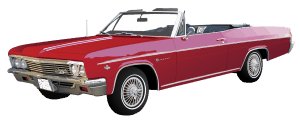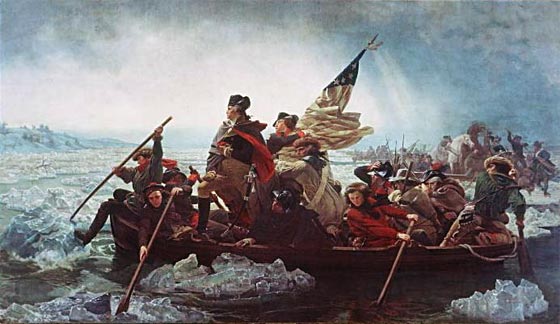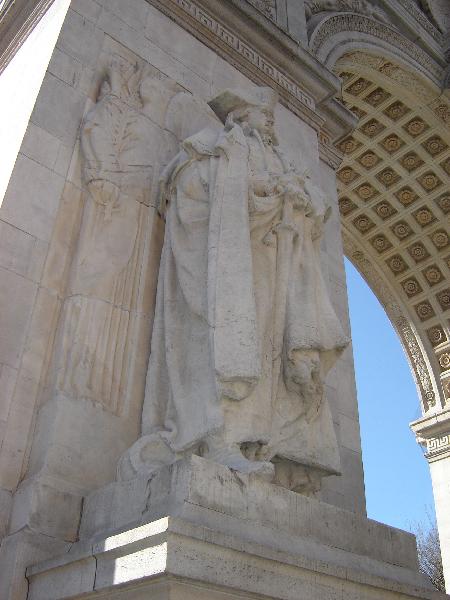Big Red Car here. Going to be another sweet day in the ATX — sunny, bit of a breeze, low humidity and cool. Ah, on Earth as it is in Texas.
So The Boss has been re-reading Washington’s Crossing by David Hackett Fischer and published by the Oxford Press. This must be the third time he has read it.
The “crossing” of the book was, of course, the crossing of the Delaware River which launched the American attack on Trenton — the first time the Colonials had ever defeated the British and, more importantly, their Hessian mercenary allies. It was a huge win for the Americans and changed the course of the war.
Says every time he reads it, he learns something new and interesting.
Washington the visionary leader
It is not a hard thing to praise George Washington particularly when one looks at the results — near and long term — of his leadership. He was a visionary leader to be sure.
His vision was bold, broad and deep. He was a huge thinker and he made his thoughts into reality by force of personality.
With the big strokes, Washington participated in and lead an armed rebellion against the greatest military force on the planet and wrested the Colonies from British control at the point of a bloody bayonet.
He raised, trained and lead an army to victory that he had to recruit from disparate parts of the Colonies.
He out-generaled the best generals in the world.
He did it all on a shoe string.
When offered the chance to become King George I of America, he demurred and said that liberty and freedom were more important.
[Big Red Car says: Do you know a single politician today who could hold this guy’s jock? Ooops, bit crude. Sorry says the Big Red Car. But, hey, it’s true, right?]
Washington was a clever startup guy
When you’re wrestling with your lovely Internet based startup and deciding what kind of revenue model to adopt, think about how hard it must have been to raise, train, fund and lead an army composed of volunteers, state militias and locally raised forces whose leadership was elected in many instances. Washington was able to meld this unlikely mix of forces into a real army.
It took time and perseverance and learning from failure but Washington prevailed. He had an indomitable iron will. Do you? Yes, you do, go discover it and harness it.
Not just a guerrilla army but one with foot soldiers, cavalry forces and artillery — a combined arms force. In many aspects, the American ability to master and use artillery was a critical element of the long term American success against the British and their German mercenaries. The Americans routinely outgunned the legendary British artillery.
In this picture, you see the General George Washington of Washington Square (Arch) in New York City which shows not the older fatherly picture of Washington that we see on currency and other official uses but the young stud general who lead our armies to victory. It is an impressive statue and captures his vitality and vigor. [And, perhaps, the reality that the American Revolution was a very cold undertaking.] This is the wartime General George Washington who was the essential leader in America’s successful rebellion and Revolution.
Washington’s strongest qualities as a startup guy
The list of accolades for Washington is very, very long but here are some very important qualities and skills he brought to his very successful startup.
1. Washington was an audacious planner.
When the Brits and Hessians had beaten the Continental Army across Long Island, Manhattan and northern New Jersey until the Americans were sheltered only by the Delaware River, Washington did not sit around and lick his wounds — he planned and executed what even today is one of the most audacious feats of arms. Ever.
The attack on Trenton — a double river crossing and envelopment of a superior military force in a fixed defensive position through a blinding snowstorm — was pure military genius. Washington bet the entire Revolution on this one attack and he came up big. Balls. Great big balls.
2. Washington was a fabulous communicator and leader in his councils of war.
Washington held councils of war in which all subordinate commanders were present and in which no plans were finalized until everyone had had there say. He invited local patriots — who knew the local geography like natives — to ensure that his plans were feasible given terrain considerations.
Washington built a consensus and made everyone own the entire plan. This was quite extraordinary given such an otherwise authoritarian structure that is typical of the military.
3. Washington was a wise creator and consumer of battlefield intelligence.
Washington created and operated a network of spies which provided critical actionable information on enemy locations, dispositions and movements. This was critical to his planning and allowed him to pick routes of advance and attack which were based upon finding weaknesses and voids in enemy defensive dispositions.
4. Washington always picked the “good ground”.
Robert E Lee in the Civil War prevailed in most battles with the Union because he picked the “good ground”. The only exception was Gettysburg whereat a Union Brigadier General of cavalry got there first and invested the high ground which ultimately was the key ingredient in the Union victory.
Washington had a similar facility in being able to pick “good ground”. In the Second Battle of Trenton, Washington picked a hill south of the town and prepared a defense in depth and invited Lord Cornwallis to come visit.
Of course, Lord Cornwallis was drawn to the site having just lost a Hessian Regiment to Washington a few days earlier. The Brits and their Hessian allies were out for revenge and smelled blood. They immediately swept down to Trenton to destroy Washington and the Continental Army — leaving Princeton exposed and almost undefended.
Washington’s selection of this patch of earth with a promontory from which to use his artillery, a creek in the front to impede the advance of the British and Hessians, the Delaware River on his left to provide an unturnable flank and a swamp on his right to protect that flank also — was a stroke of genius but only if he had thought far enough ahead to know that he would withdraw to the south and circle around that swamp and attack Princeton while Lord Cornwallis and his massed army waited for dawn.
5. Washington was always at “the” critical spot to influence the outcome of the battle with his personal leadership and example.
Washington achieved tactical surprise in his crossing of the Delaware River in the Battle of Trenton but he failed to arrive at Trenton at dawn having been delayed by the crossing itself and the horrific snow and conditions. Some Continentals actually froze to death in the march.
When the Americans finally arrived at Trenton and unveiled their tactical scheme — an encirclement of the town of Trenton — Washington was at the critical north end of the city from which the attack was launched. His use of artillery was brilliant as the Hessians were impeded from forming up a coherent defense by the use of massed artillery from the north end. Washington had placed himself at “the” spot where he could influence the entire battle.
6. Washington was brilliant at using delaying tactics to create a strategic advantage.
When Lord Cornwallis formed up his impressive army and headed down from Princeton to Trenton to punish Washington and his Continentals, Washington used brilliant delaying tactics to ensure that the Brits and Hessians did not arrive until after dark. When they did arrive they had substantial numbers of casualties to manage.
Washington placed significant military forces — in battalion and larger size — along the route of march and had them ambush the Brits as they made the journey. They exacted meaningful casualties thereby diminishing the combat power of the Brits but also made the Brits deploy into a tactical formation, rather than a road march formation, to root out the Americans.
The Americans suffered almost no casualties and retired in good order as the British maneuvered to defeat them. The Americans then joined the defense of Trenton.
The British casualties were more significant than just a wounded soldier who could not participate in the upcoming battle. Each casualty had to be transported and doctored thereby sapping even more combat power from the attacking forces.
The Brits arrived just at dusk and a small battle ensued in which the Americans used their artillery and troops to bloody the British forces. The Americans retreated into their well built and formidable defensive positions on the high ground south of Trenton thereby setting the trap.
7. Washington mixed seasoned and green troops to steady his army.
When Washington evaluated his units he knew that he had both seasoned soldiers from the preceding campaign across Long Island, Manhattan and New Jersey and green militia units which had recently been raised.
He was very clever in positioning his seasoned troops at critical locations and placing green troop units between seasoned units. In this way, he bucked up the fighting vigor of the green troops with the solid performance of his veteran soldiers.
8. Washington was smart in his treatment of prisoners.
The British and the Hessians routinely killed prisoners. They bayoneted captured officers often stabbing them in the eyes as part of bayonet drill. They did not really want to feed them and had little excess rations to do so under any circumstances.
Washington, on the other hand, mandated that prisoners be treated with dignity, respect and care. This was an enormous difference in the leadership of the Americans v the British.
It was also a message to the American army that they would also be treated with compassion and care in every aspect of their enlistment and service. In a subtle manner, Washington set the tone for the Americans in that noble concepts like freedom and liberty could not co-exist with base sentiments like killing prisoners.
9. Washington just plain out-generaled the best generals in the world and did it routinely.
The British Army was lead by fifteen generals whose average age was 48 years and whose experience individually averaged over thirty years of active military service. They had fought all over the world and had never been beaten.
Washington’s army was commanded by a general officer corps of twenty one men whose average age was forty three and whose average military service was less than two years.
General Washington was the difference. He was better than Lord Howe and Lord Cornwallis — the best the British had to offer.
How to use this information
Take a look at your startup or small business and adapt these principles of how General George Washington put his startup together. When you think of actionable battlefield intelligence — think of knowing your competition. When you think of Washington’s democratic councils of war — think of how you communicate YOUR Vision, Mission, Values and Strategy to your people.
We Americans are entrepreneurs not by accident but by the blood that flows in our veins. It’s how we won the American Revolution. Apply those ideals to your business and WIN!
But, hey, what the Hell do I know anyway? I’m just a Big Red Car.



Great analogies!
Except for how he ended, how did Napoleon compare to Washington?